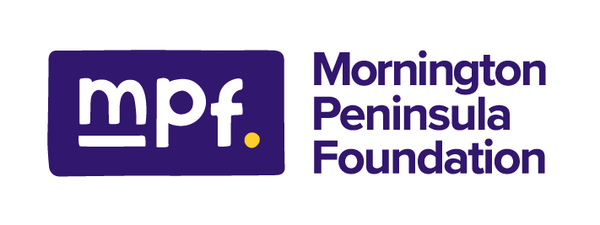Much of what we fund closes gaps in systems that people otherwise fall through. Understanding where the gaps are, why they exist, and how they can be closed, is the work of the family and housing support services which we have supported since our inception. Gaps in fact are an opportunity for innovation. Spotting them and working them out is leading to change that can become sustained if managed strategically.
We have often asked, why do we need to fund family support services in both Hastings and Rosebud if there are government funded service providers? We are always assured by the local support centres whom we fund that their services, in the way they are funded and delivered, are vital to the community and fill a significant gap. And this is the role of philanthropy – to draw attention to systemic failures, try and test new ideas and influence systems at the policy level.
So we ask - what is that gap, why is it there, and if what we are funding is closing that, how can this work be expanded further?
The nature of both the housing and family support services MPF funds are differentiated from mainstream services in many ways. They are voluntarily attended, not time limited, client led, not programmatic and clients can return multiple times. They are also based in emergency relief centres, so easily accessed by people in a state of crisis.
These services are relational, practitioners are non judgemental, they listen and respond to client needs as they are presented. They may meet them in the centre or in places that are more comfortable for the client. They go at the speed of the client and set goals that are achievable, building trust and confidence to engage.
No one person is the same as another, no story the same, but there are distinct trends. Most cases include financial stress, mental health and either current or historical family violence. In all cases individuals have been let down by the system, with suffering compounding at each stage.
Many cases include childhood trauma through neglect and or abuse. School has in many cases been a lost opportunity for individuals to get support. Low education and limited social connections lead individuals to manage as best they can. Housing is precarious, relationships stressed, resources stretched.
Open and flexible support can help to unpack these complexities, one step at a time. They often involve more than one generation. It is in working with parents, carers and children to close gaps and build trust between schools, parents and local services that can gradually stabilise circumstances and build towards future goals.
Working with children and young people who have been caught up in adverse circumstances at the earliest possibility has inordinate benefits down the track for the individual, their family, and the community as a whole.
The people who attend these services are often casualties of the mainstream, just as many of the young people we work with have been casualties of an education system that did not recognise or have the tools to meet their needs.
We are seeing amazing changes in schools. People throughout the community talk about how the schools are changing so they understand children and young people and their families. Schools have time to know students and families and work with them, they have structures and systems that give them the ability to create learning environments that include all children.
And we are seeing the local services integrate more and more with the schools, with this level of support better engagement with mainstream services can occur.
